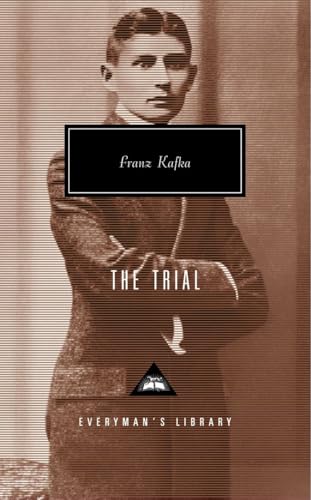The story of the mysterious indictment, trial, and reckoning forced upon Joseph K. in Franz Kafka’s The Trial is one of the twentieth century’s master parables, reflecting the central spiritual crises of modern life. Kafka’s method–one that has influenced, in some way, almost every writer of substance who followed him–was to render the absurd and the terrifying convincing by a scrupulous, hyperreal matter-of-factness of tone and treatment. He thereby imparted to his work a level of seriousness normally associated with civilization’s most cherished poems and religious texts.
Translated by Willa and Edwin Muir
A terrifying psychological trip into the life of one Joseph K., an ordinary man who wakes up one day to find himself accused of a crime he did not commit, a crime whose nature is never revealed to him. Once arrested, he is released, but must report to court on a regular basis--an event that proves maddening, as nothing is ever resolved. As he grows more uncertain of his fate, his personal life--including work at a bank and his relations with his landlady and a young woman who lives next door--becomes increasingly unpredictable. As K. tries to gain control, he succeeds only in accelerating his own excruciating downward spiral.
![]()
